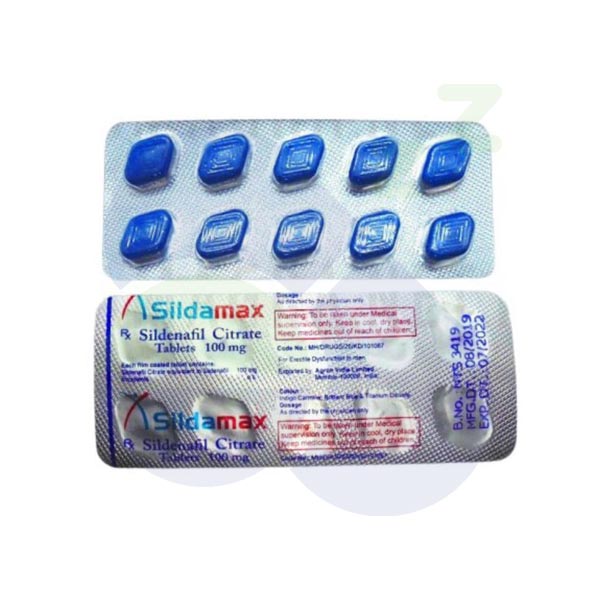Depression
Depression & Erectile Dysfunction
What Happens in the Brain to Cause Depression?
Possible causes of Depression & Erectile Dysfunction include a combination of biological, psychological, and social sources of distress. Research increasingly suggests that these factors change brain function, including the activity of certain neural circuits in the brain.
The persistent feeling of sadness or loss of interest that characterizes major depression leads to a range of behavioral and physical symptoms. These symptoms may include changes in sleep, appetite, energy level, concentration, daily behavior, or self-esteem. Depression can also lead to thoughts of suicide.

Amitriptyline 25mg: Medicine for Depression
Amitriptyline 25mg effectively treats depression. As a tricyclic antidepressant (TCA), it improves mood and emotional state by affecting the balance of certain chemicals (neurotransmitters) in the brain.
Depression: Amitriptyline relieves symptoms of depression, such as persistent sadness, loss of interest in activities, and feelings of hopelessness.
Other Uses: Doctors also prescribe amitriptyline for chronic pain, migraines, and certain anxiety disorders.
Amitriptyline increases the levels of neurotransmitters like serotonin and norepinephrine in the brain. By inhibiting their reuptake into nerve cells, it enhances their mood-lifting effects.
Typical Dosage: Doctors usually start adults on a 25mg dose once daily, often taken at bedtime due to its sedative effects. They may adjust the dosage based on the patient’s response and the severity of symptoms.
Administration: Take the tablet orally, with or without food, at the same time each day to maintain consistent levels in your system. Follow your doctor’s instructions closely.

Side Effects
Common Side Effects: These include drowsiness, dizziness, dry mouth, blurred vision, constipation, and weight gain.
Serious Side Effects: Contact your healthcare provider immediately if you experience irregular heartbeat, severe mood swings, unusual thoughts, difficulty urinating, or eye pain.
Dependency and Withdrawal: To avoid dependency, do not stop taking amitriptyline suddenly. Your doctor will guide you on how to taper off the medication gradually.
Interactions: Inform your doctor about all medications you are taking, as amitriptyline can interact with MAO inhibitors, other antidepressants, and certain pain medications.
Contraindications: Avoid using amitriptyline if you have recently had a heart attack, or have heart disease, liver disease, or a history of seizures.
Amitriptyline 25mg treats depression by balancing neurotransmitters in the brain. By alleviating symptoms such as persistent sadness and loss of interest, it helps improve the quality of life for those suffering from depression. To ensure safe and effective treatment, use this medication under the close supervision of a healthcare provider, follow the prescribed dosage, and inform your doctor of any other medications or health conditions.
Requires a medical diagnosis
Major depression requires a medical diagnosis. It often includes a persistent feeling of sadness or loss of interest, which leads to a range of behavioral and physical symptoms. These symptoms may include changes in sleep, appetite, energy level, concentration, daily behavior, or self-esteem. Additionally, depression can lead to thoughts of suicide.
The main treatments usually involve medication, talk therapy, or a combination of both. Increasingly, research suggests that these treatments may normalize brain changes associated with depression.
Major depression often involves a persistent feeling of sadness or loss of interest, which leads to a range of behavioral and physical symptoms. These symptoms may include changes in sleep, appetite, energy level, concentration, daily behavior, or self-esteem. Additionally, depression can lead to thoughts of suicide.
What is Erectile Dysfuntion?
Erectile dysfunction (ED) occurs when a man is unable to achieve or maintain an erection sufficient for satisfactory sexual performance. This condition, which becomes more prevalent with age, can affect men of all age groups.

Causes
ED stems from various factors. Physical causes encompass cardiovascular diseases, diabetes, obesity, hormonal imbalances, neurological disorders, certain medications, and substance abuse. Psychological causes include stress, anxiety, depression, and relationship issues.
Symptoms
Symptoms of ED include difficulty achieving an erection, maintaining it during sexual activities, and reduced interest in sex.
Diagnosis
Healthcare providers diagnose ED by collecting patient history, conducting a physical exam, and performing tests such as blood tests, ultrasounds, or psychological assessments.
Treatment
Treatment options depend on the underlying cause. Lifestyle changes, such as improving diet and exercising, medications like PDE5 inhibitors (e.g., Viagra, Cialis), and therapy for psychological issues can be effective. Medical devices and, in severe cases, surgery may also help.
ED is a treatable condition. By addressing physical and psychological factors, men can effectively manage ED. Consulting a healthcare provider is crucial for determining the best treatment plan.
Kamagra Oral Jelly: medicines for Erectile Dysfunction
Kamagra Oral Jelly 100mg treats erectile dysfunction (ED) in men, containing sildenafil citrate, the active ingredient in Viagra. It’s designed for easy consumption, especially for those who struggle with swallowing pills.
Sildenafil citrate in Kamagra Oral Jelly relaxes muscles and increases penile blood flow during sexual stimulation, enabling a firm erection and satisfactory sexual activity.
The typical dose is 100mg, taken orally 30-60 minutes before sexual activity. Avoid exceeding this within 24 hours to prevent potential side effects.

Effectiveness
Known for its rapid action, Kamagra Oral Jelly takes effect within 15-30 minutes and lasts 4-6 hours, providing a window for sexual activity.
Precautions and Side Effects
Common side effects include headache, flushing, indigestion, nasal congestion, and dizziness. Rare but severe effects may include sudden vision or hearing loss, prolonged erection (priapism), and allergic reactions. Avoid alcohol and fatty meals to maintain effectiveness.
Sildenafil Citrate
Sildenafil Citrate 100mg is a medication primarily for treating erectile dysfunction (ED) in men, falling into the category of phosphodiesterase type 5 (PDE5) inhibitors. These drugs function by increasing blood flow to the penis during sexual stimulation, facilitating the achievement and maintenance of an erection suitable for sexual activity.

Dosage and Administration
The standard dose is one tablet of Sildenafil Citrate 100mg taken orally approximately 30-60 minutes before engaging in sexual activity. It’s crucial to adhere to this dosage and avoid exceeding it within a 24-hour period to prevent potential side effects.
Effectiveness
Renowned for its rapid action, Sildenafil Citrate 100mg typically takes effect within 30 minutes to an hour post-ingestion. Its effects can last up to 4-6 hours, providing a significant window for sexual activity.
Precautions and Side Effects
While common side effects include headache, flushing, indigestion, nasal congestion, and dizziness, rare but severe reactions such as sudden vision or hearing loss, prolonged erection (priapism), and allergic reactions can occur. Seeking medical attention for any severe side effects is essential.
Sildenafil Citrate 100mg effectively addresses ED by facilitating erections during sexual activity. Responsible use, adherence to dosage guidelines, and consultation with a healthcare provider are crucial to ensure safety and maximize the benefits of this medication.
Conclusion
The conclusion for “Depression & Erectile Dysfunction” is that these conditions require medical diagnosis and often include persistent feelings of sadness or loss of interest, leading to various behavioral and physical symptoms. Treatment typically involves medication, talk therapy, or a combination, with research indicating potential normalization of brain changes associated with depression. Effective management of depression and erectile dysfunction requires addressing both physical and psychological factors, under the guidance of healthcare providers, to ensure safe and appropriate treatment plans.
